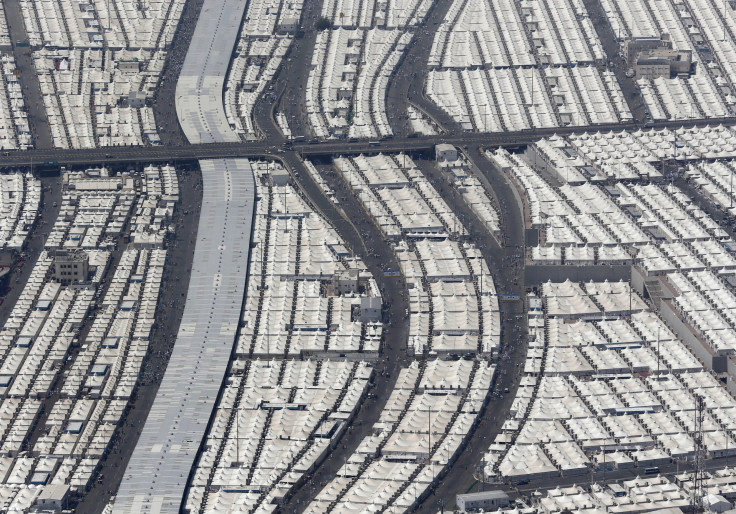Hajj Stampede 2015: Iran Raises Death Toll To 464, No Hope Of Finding Over 200 Missing Iranian Pilgrims

Iran said Thursday that 464 of its nationals have died in last week’s hajj stampede in Saudi Arabia -- nearly double the previously declared number of 239 -- even as the two nations looked toward easing tensions following the disaster.
Saudi and Iranian media said Riyadh offered condolences to Tehran Wednesday at a meeting of the health ministers in the Saudi city of Jeddah, according to Reuters.
"The meeting was positive and the Saudi minister announced the King's condolences to the Supreme Leader, and the government and people of Iran," Iranian Health Minister Hassan Ghazizadeh Hashemi said, Reuters reported, citing state news agency IRNA.
The Iran Hajj and Pilgrimage Organization said that over 200 other nationals were missing and that there was no hope of finding them alive after the deadly stampede that killed at least 769 people in Mina, near the holy city of Mecca. The incident occurred on the first day of Eid al-Adha, or the Feast of the Sacrifice, which marks the end of hajj.
"Seven days after the incident and after visiting hospitals [in Saudi Arabia] ... we sadly announce that number of Iranians who died is 464," the Hajj Organization said in a statement published on state TV website IRIB, according to Reuters.
Ali Marashi, head of the Iranian Red Crescent medical center in Tehran, said Iran had given up hope that any of those missing were still alive.
"We are completely disappointed from finding unknown and missing Iranians," Marashi reportedly told state media.
On Wednesday, Saudi and Iranian officials also reportedly agreed to repatriate Iranian pilgrims killed in the stampede. Hashemi said that he and his Saudi counterpart Khaled al-Falih had struck a deal aimed at "speeding up the process, as the victims' families are waiting" back at home, Agence France-Presse reported, citing Iran's IRNA news agency.
"Iran would be the first country to receive bodies and repatriate them," Hashemi said, adding that the unidentified bodies would be repatriated first and identified at home.
Falih had earlier blamed the pilgrims for the stampede, saying they were undisciplined and moved "without respecting the timetables" established by authorities.
Iran's supreme leader Ayatollah Ali Khamenei called on Saudi Arabia to apologize for the deadly stampede and threatened “tough and harsh” retaliation over the incident.
"Saudi Arabia failed to fulfill its duties concerning the desperate wounded (pilgrims)," Khamenei said Wednesday, according to Iran's official Press TV. "Should we decide to show any reaction, our reaction will be tough and harsh.”
The kingdom also drew criticism from Indonesia, Nigeria and Syria for the deadly stampede, which occurred just days after a giant construction crane collapsed at another major Islamic holy site, the Grand Mosque in Mecca, killing at least 110 people and injuring more than 390.
© Copyright IBTimes 2024. All rights reserved.











